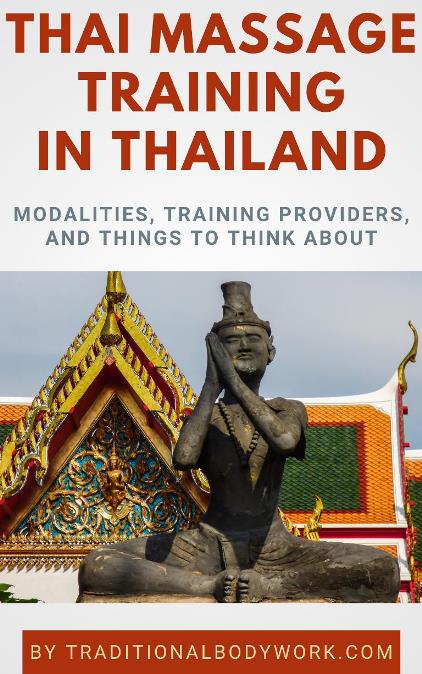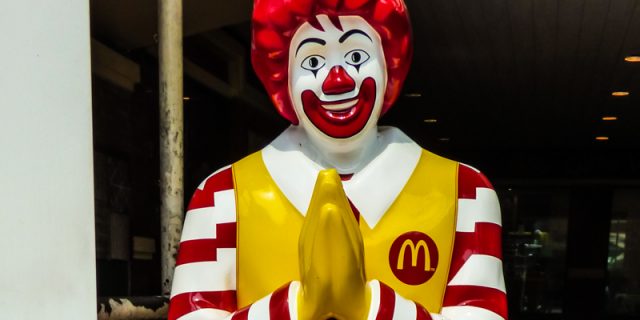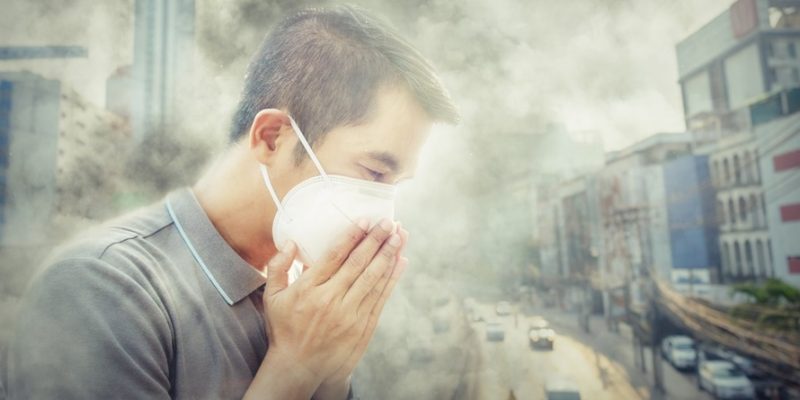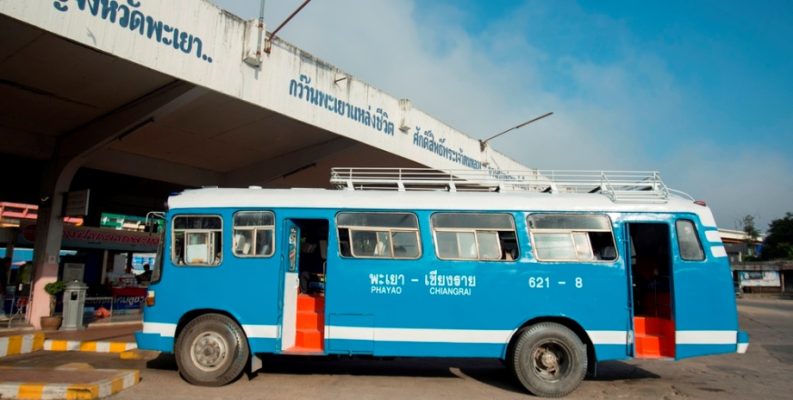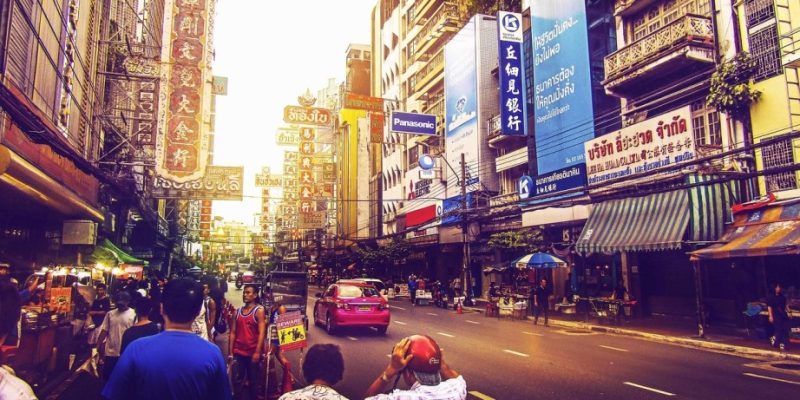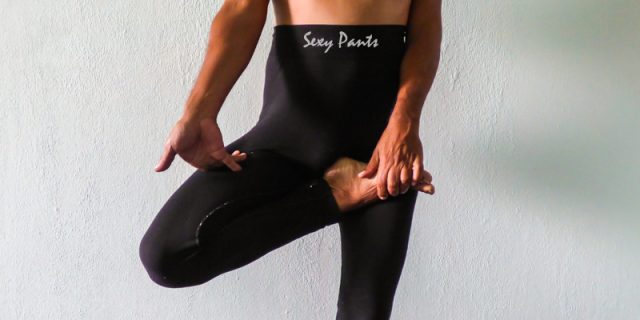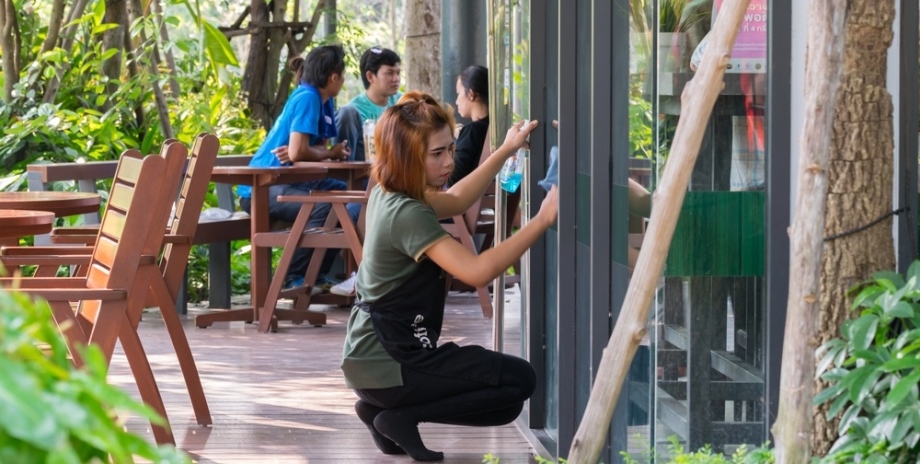
One of the things that struck me when I first visited Thailand is how sort of clean and orderly it actually is if you look a bit further than the Thai hustle and bustle and the high density of people and things.
I mean, in the cities and villages you would rarely see random litter in the streets, and even street vendors would carry their own waste bins with them. In fact, you would often see the Thai sweeping or mopping their home, shop, or the sidewalk in front of it, and I haven’t seen Thais who just take a piss in the streets, or anything. In addition, you would often need to take your shoes off when entering a home, or sometimes even when entering an office or shop.
As for personal hygiene, the Thai usually shower twice a day, take good care of their clothes and skin, and they would rinse their behinds with water after a visit to the toilet instead of smearing sh*t between their buttocks with our good old Western toilet paper.
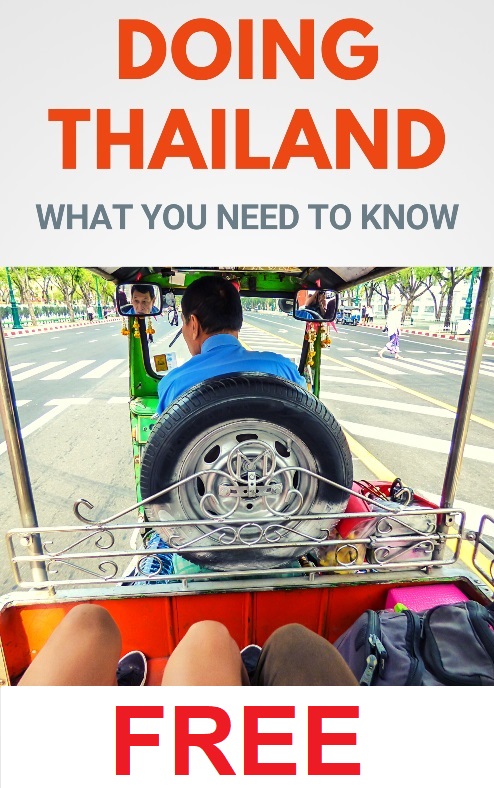
At first sight, yeah, a clean people, but that’s actually only part of the story and much about appearance. The reality is that when you look further than the outside of things, you would discover that the Thai are often not so clean at all when looking at it with Western eyes. Thai cleanliness has much to do with “keeping up appearances,” which is an extremely important aspect of daily life.
So, the floor in the shop or restaurant would be swept or mopped nicely, but when you look at the ceiling you would see the spider webs, dust, soot, and grease. The latter often also counts for the private room at the back of the shop, and the back yard would be a mess and full of litter. And, for instance, when you are visiting the interior of a spotlessly shining temple, it would be best not to look around the back of the building.
A toilet or bathroom which may be visited by strangers or customers is often rather clean, but a visit to their private bathroom would be something else. Sure, you will have soap and water and such, and a clean towel, but the corners, walls, and tiles are far from clean, well, it’s not uncommon that it’s just plain filthy.
And when you visit the beaches or go a bit deeper in the countryside, you would see trash and plastic thrown around randomly. Sometimes the Thai would even throw cans, leftovers, or plastic bags just out of the bus window or into the sea, even while you’re looking at them. Nobody cares. Apparently — in their leisure time or away from their immediate environment — things are allowed to be different. Perhaps somebody else will clean it up, or whatever.
The thing is that much of the Thai cleanliness is for appearances. It means that what others can see needs to be polite, nice, cute, clean and attractive, but what others don’t see (or are not supposed to look at) is allowed to be an utter mess and dirty.
In addition, it also means that cleanliness is not seldom “an act” and not really done to actually effectively cleanse. For instance, the floor of the restaurant is black with soot and grease, but you would regularly see the owner sweeping or mopping it, without any intention to do some deep cleansing. Food and napkins or other stuff that fell on the floor is taken care of, but the floor simply remains black and greasy.
In 2009, I worked together with some Thai people on a project in the countryside where we would clean plastic litter in a village’s surroundings and also clean and repaint a school building. During the project we slept in the building (it were school holidays), and well, the school was really very dirty, including the bathrooms, the school kitchen, the school yard, and the classrooms.
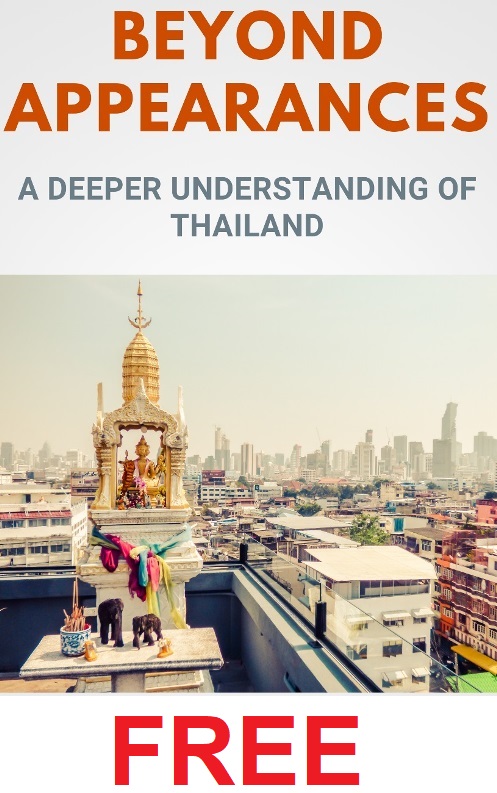
As I had already noticed all these things about Thai cleanliness I just wrote about, I ventured to ask one of the Thai project members “if the Thai people don’t see the dirt or if they don’t care?” And I can remember so well that she cast her eyes down and answered: “We don’t care.”
What I learned there and then during the project is that cleanliness is a concept, a choice. Not only in Thailand but around the world. It’s simply a certain idea and habit in a specific country, culture or society of what needs to be clean and what doesn’t. In fact, to keep everything, always spotlessly clean would be a 24-hour job. Hence, I think the case is that one needs to make choices of what one finds important to be clean and what not.
So, this article is not an outright critique on Thai cleanliness. It’s merely showing the facts, facts, by the way, which obviously don’t count for every Thai person. It wants to show that we as foreigners, notably Westerners, shouldn’t judge according to our own particular ideas of cleanliness.
A good thought in this respect is to realize that the Thai often feel that Westerners are “not so clean,” basically because they judge on the appearance of a person. For instance, many Westerners don’t pay too much attention to the state of their clothes or the type of clothes they wear on certain occasions, but for the Thai both appropriate clothes (for the occasion) and meticulously clean clothes that have no stains or rips is of utmost importance for one’s “standing.” In addition, the Thai cannot tolerate body odors and sweaty people, and again — in the West that’s rather often seen as “not of so great importance.”
In conclusion, I would say: “When in Rome, do as the Romans do” and when you are in Thailand, it’s perhaps best to “think and do as the Thai do and think” if you want to make the most of your holidays or if you live and work in the country.


